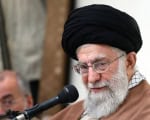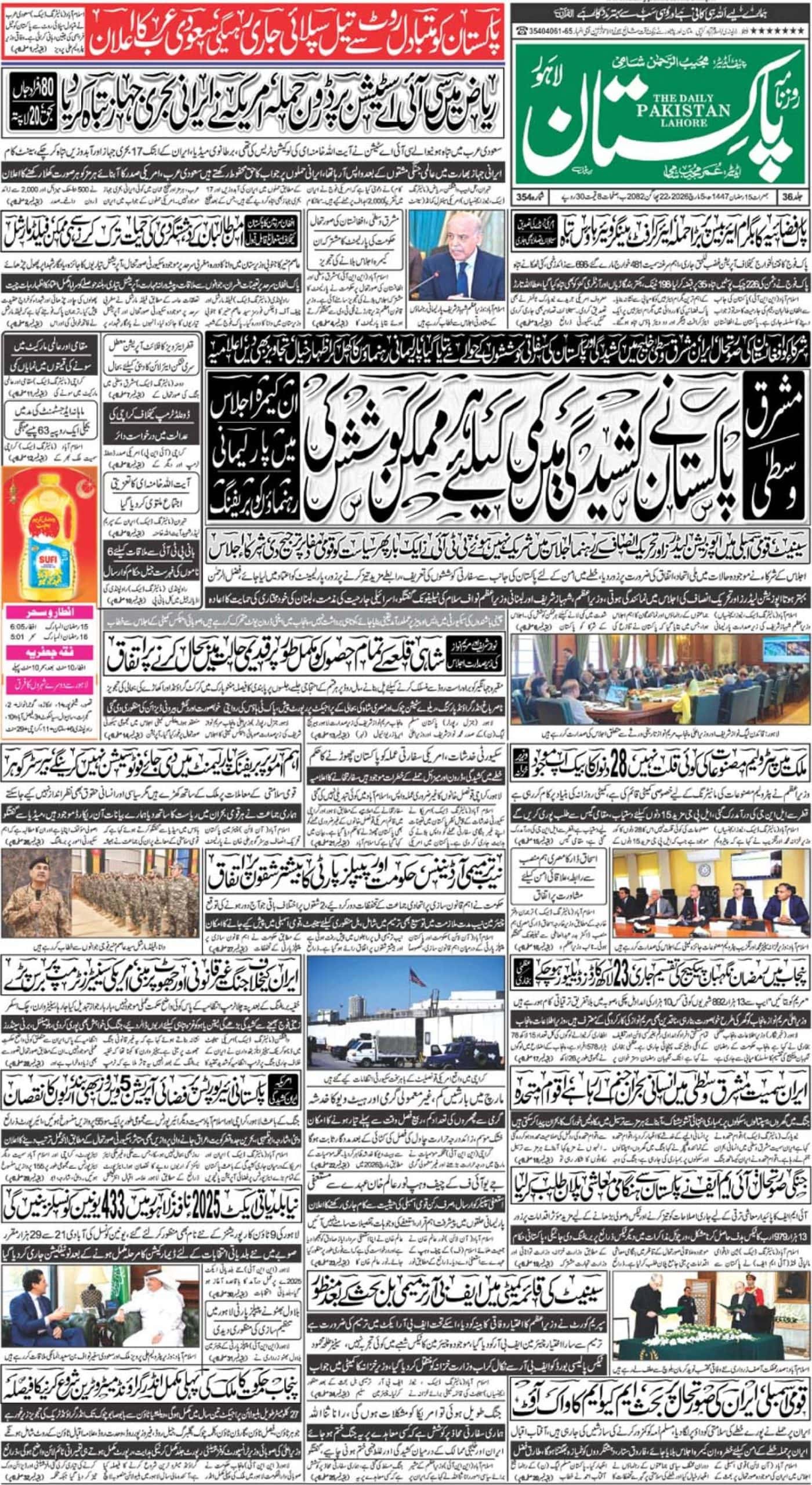On a crisp winter’s Saturday, a throng of somber figures converged at the H-11 jinazgah. It was a mosaic of the nation’s elite—civil servants with stoic faces etched by years of service, judges with solemn expressions, politicians whispering condolences behind a veil of sorrow, and businessmen with eyes downturned. They came to bid farewell to Mr. Khalid Aziz, a bureaucrat whose brilliance had once blazed like a beacon through the corridors of power. Heartbreak hung heavy in the air, a silent testament to the loss of one of the nation’s most revered administrators. The soil of his grave would bear the weight of a legacy that shaped a country and the heavy hearts of those left in the wake of his towering memory.
Khalid Aziz was born to a renowned industrialist, Abdul Aziz, whose factory, M. Hayat & Bros (Pvt) Ltd, had been the cornerstone of Pakistani furniture craftsmanship. Yet, despite the lure of a dynasty’s reins, the elder Aziz harboured a different vision for his precocious son. The family’s legacy of wood and varnish was to be Khalid’s inheritance, but not his destiny, for his father saw in him the makings of a C.S.P officer—a position of high prestige in Pakistan.
To forge the mettle of a leader, Khalid was sent away to the storied grounds of Lawrence College Ghora Gali, nestled in the Himalayan foothills. An institution steeped in history, Lawrence College had, since its inception in 1860 by the venerable Sir Henry Montgomery Lawrence, been the crucible for the nation’s finest. It was here, among the sons of empire and legacy, that Khalid’s character was honed: leadership, an unyielding work ethic, courage, and a compassionate hand extended to those less fortunate.
By 1962, he rose to be the head boy, his name inscribed in the college’s lore. Yet it was the cricket pitches that bore witness to his other remarkable talent. As a batsman, he was formidable, nearly legendary, his crowning achievement a magnificent 49 runs against the English at Peshawar Services Ground in the fervor of 1966.
Khalid’s laurels were many—a full blazer, the captain’s band for the cricket team, a beacon of Lawrence College’s storied tradition. His story was more than one of individual triumph; it was a testament to the enduring spirit of a family who sought not just to create wealth but to forge a legacy of service and excellence.
Khalid Aziz’s academic and professional trajectory is a narrative of distinguished achievement. A Gold Medalist in M.A. Political Science from the University of Peshawar, Aziz’s scholarly aptitude was evident early on. His intellectual journey took him to Queen’s College, Oxford, an institution steeped in tradition, where he delved into the integrated disciplines of Philosophy, Politics, and Economics. This rigorous triad honed his strategic insight, a foundation that would inform his later contributions to both academia and the broader professional sphere.
During his tenure at Oxford, Khalid Aziz embraced the quintessentially British pastime of cricket, playing for the university’s esteemed team. In parallel with his athletic endeavors, Aziz navigated the challenging waters of the Pakistan civil service examinations in London. Displaying his characteristic dedication and intellectual agility, he passed with distinction on his inaugural attempt—a remarkable feat that highlighted his readiness for public service and marked the beginning of a promising career in the government sector.
The year 1969 marked Khalid’s entry into the civil service of Pakistan, as he was inducted into the District Management Group, the zenith of bureaucratic echelons. But Khalid, a man of insatiable intellect, sought further enlightenment, securing an M.Phil in Development Studies from the prestigious Wolfson College, Cambridge. His academic journey placed him among a rarefied cohort of civil servants whose education spanned the revered institutions of both Oxford and Cambridge.
Throughout his illustrious tenure, Khalid navigated the complexities of governance with the deftness of a seasoned statesman. His career was a constellation of pivotal roles: Political Agent in the tribal frontiers of Khyber, Orakzai, and Waziristan; Commissioner of Peshawar, Dera Ismail Khan, and Kohat; ascending to the echelons of Additional Chief Secretary and, ultimately, the Chief Secretary of the North-West Frontier Province. In each post, Khalid’s leadership was marked not just by the authority he wielded but by the lives he touched and the landscapes he transformed. His narrative is not merely one of achievement but a saga of service, etched into the very fabric of the nation he so dutifully served.
In the storied career of Khalid Aziz, the most formidable challenge he faced was not in the labyrinth of bureaucratic maneuvering or the cutthroat world of political machinations—it was a test of his very integrity. The tempest began in the tumultuous wake of General Pervez Musharraf’s coup in 1999. At the vortex of this storm, Khalid stood as the Director General of the Ehtesab Bureau, the eye of integrity in a nation prone to corruption.
When the military junta, hungry for legitimacy, demanded that he bear false witness against Prime Minister Nawaz Sharif, Khalid chose honor over expedience. His refusal was a tectonic defiance that shook the powers that be, and in retribution, they wielded the draconian National Accountability Bureau Ordinance of 1999 like a sledgehammer to crush him.
Khalid’s principled stance exacted a heavy toll. He was cast into the grim confines of Peshawar Central Jail, only to be subsequently transferred to the foreboding embrace of Attock Fort. This ancient bastion, erected by Emperor Akbar in the 16th century, loomed over the banks of the Attock River—a silent sentinel to Khalid’s unfolding ordeal. Within its stone-cold heart, he was confined to a 6×6 cell, a dungeon designed to break the human spirit.
But Khalid’s resolve was forged of sterner stuff. On a night shrouded with the chilling whispers of mortality, he was led to the abyssal depths of the fort’s dungeons. There, under the cold gaze of a firing squad, they sought to shatter his will. Yet even in the face of death’s stark tableau, Khalid’s courage did not falter.
For eleven long years, he navigated the labyrinth of legal battles, his stoicism unwavering amidst the tempest of false accusations. And then, in a moment as cleansing as the first light of dawn, justice prevailed. In 2010, the Supreme Court of Pakistan, guardian of the law’s sanctity, proclaimed his innocence, and Khalid Aziz emerged from the crucible, honor intact, acquitted, a testament to the tenacity of an unbreakable will.
In the twilight of a career that had spanned the heights of bureaucratic power, Khalid Aziz settled into a quieter existence, one that belied the influence he continued to wield. The establishment of RIPORT, his brainchild and a policy think tank, was a testament to his undiminished zeal for shaping the narrative on geopolitical affairs. With the precision of a seasoned strategist, Aziz delved into the complexities of the War on Terror, a storm that brewed with relentless ferocity over the rugged terrains of Khyber Pakhtunkhwa.
A prolific voice on Pak-Afghan relations, his writings cut through the din of political discourse, offering clarity to a subject mired in obscurity.
But it was the historic merger of the Federally Administered Tribal Areas with Khyber Pakhtunkhwa that crowned his later years. In this delicate dance of diplomacy and governance, Aziz, alongside the venerable Mr. Sartaj Aziz, orchestrated a union that promised a new dawn for the denizens of these lands. It was a final, pivotal movement in the symphony of his professional life.
In 2018, Khalid Aziz, a man whose life had been defined by his unwavering service to his country, was blindsided by an insidious stroke. It was an ailment that served as a chilling prelude to a more dire diagnosis revealed on the operating table: a brain tumor, malignant and stealthy in its encroachment on his vitality.
For the subsequent six years, Khalid embarked on a courageous battle against the cancer that had claimed his body as its battlefield. His resolve never wavered, even as he navigated the tumultuous and often uncertain terrain of treatment and recovery. Throughout this arduous journey, his wife was an ever-present pillar of support, her dedication emblematic of a lifetime of shared love and mutual resilience.
In 2024, Khalid’s fierce battle came to its end. His passing left a void that reverberated beyond the confines of his immediate circle, extending to the countless lives he had touched through his public service. For more than three decades, he had poured his heart into the betterment of his nation, and in his absence, a collective grief enveloped those who had come to admire and respect him.
Khalid’s legacy, one of unwavering commitment to the greater good, now serves as a beacon for all who aspire to impact the world positively. It is with solemn reflection that we pay tribute to a life so rich in purpose and dedication—a life that, even in its closing chapter, inspires a path of integrity and service.













